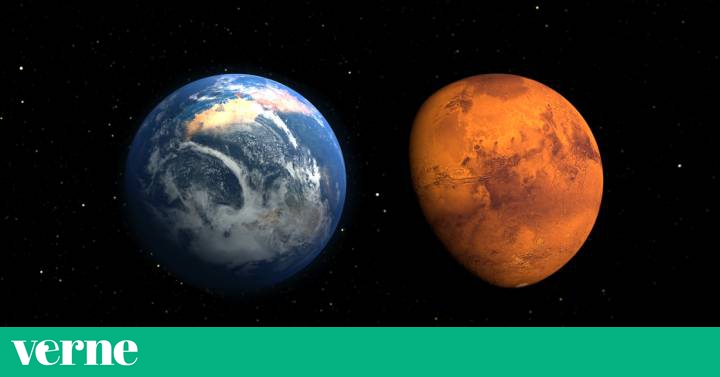Like an adventure.
This is how the Mexican astrophysicist Julieta Fierro sees the recent arrival of the
Perseverance
mission
to Mars, which has managed to document in real time the landing of the exploration vehicle that will search for vestiges of life extinct millions of years ago on the red planet.
The Mexican scientist has highlighted that this new NASA mission will reveal some hidden secrets that explain why Mars ended up being a desert planet, when about 4,000 million years ago it had characteristics similar to those of Earth.
"Mars was a world that had water, atmosphere, maybe life, but something happened to it and it desertified," the astronomer also points out at the conference
To the conquest of Mars
, organized by the National Autonomous University of Mexico (UNAM).
The Mexican physicist, Julieta Fierro .. Cuartoscuro
With
Perseverance,
technological developments also advance that will allow us to explore space in a different way in the future.
"It is the first time that a mission takes a helicopter to another world to take pictures to detect which are the most important rocks and bring them to Earth," says the scientist with great enthusiasm.
According to Fierro and his colleagues, Drs. Antígona Segura and Luis Franco, it is possible that the extinction of life on Mars was due to strong changes in the planet's greenhouse effect that wiped out the atmosphere.
"It is important to know what happened to Mars because we do not want the same to happen to Earth," says Dr. Fierro.
"Mars had liquid water in the past, active volcanoes, polar caps with carbon dioxide and water," explains Antígona Segura, a doctor from the Institute of Nuclear Sciences of the UNAM.
"
Perseverance
has captured images of a delta where there was an extinct river," he added. "The new exploration vehicle has the ability to detect organic material and would allow us to see possible microfossils," he details.
Was there a climate change on Mars?
Dr. Segura explains that Mars experienced a climate change that affected the planet's atmosphere.
"The greenhouse effect was reducing carbon dioxide and stopped warming the planet. It lost water and as the atmosphere was lost, the planet was cooling," says Antígona Segura.
"Everything we discover is important because at some point we want to transform Mars. In 300 years it will be a habitable planet," says Julieta Fierro.
"We want to have missions so that they can survive there with greenhouses and sources to produce fuel
in situ,
" adds the doctor.
The 'Perseverance' cameras show a part of the landscape of Mars.
Reuters
Thanks to the plutonium-based power source that it carries,
Perseverance
can continue to transmit images of what it discovers over the next 18 years.
Julieta Fierro assures that the Martian delta that has been seen these days, "is very similar to the Coahuila desert", where there was also a river millions of years ago.
He has also shared his impressions of the crater in which the vehicle has landed: "On the edges of this crater there are calcareous stones, such as those found in the cliffs of the Earth produced by marine organizers".
Dr. Fierro, enthusiastic about this new step by humanity, has highlighted the importance of basic science and the need for countries to continue investing in research despite the most difficult moments of the pandemic.
"This time we accompany this great adventure and we are part of this great feat and we are capable of taking on these challenges even in the most difficult moments," he assured.
He also believes that the United Nations should meet again and decide whether the new discoveries belong to one country or all of humanity.
"The United Nations has to discuss again whose products are the different stars, it would be unfortunate if we said that the 4,000 extrasolar planets discovered are ours", reflects Fierro.
Follow Verne México on Facebook, Twitter and Instagram and don't miss your daily ration of internet wonders.

